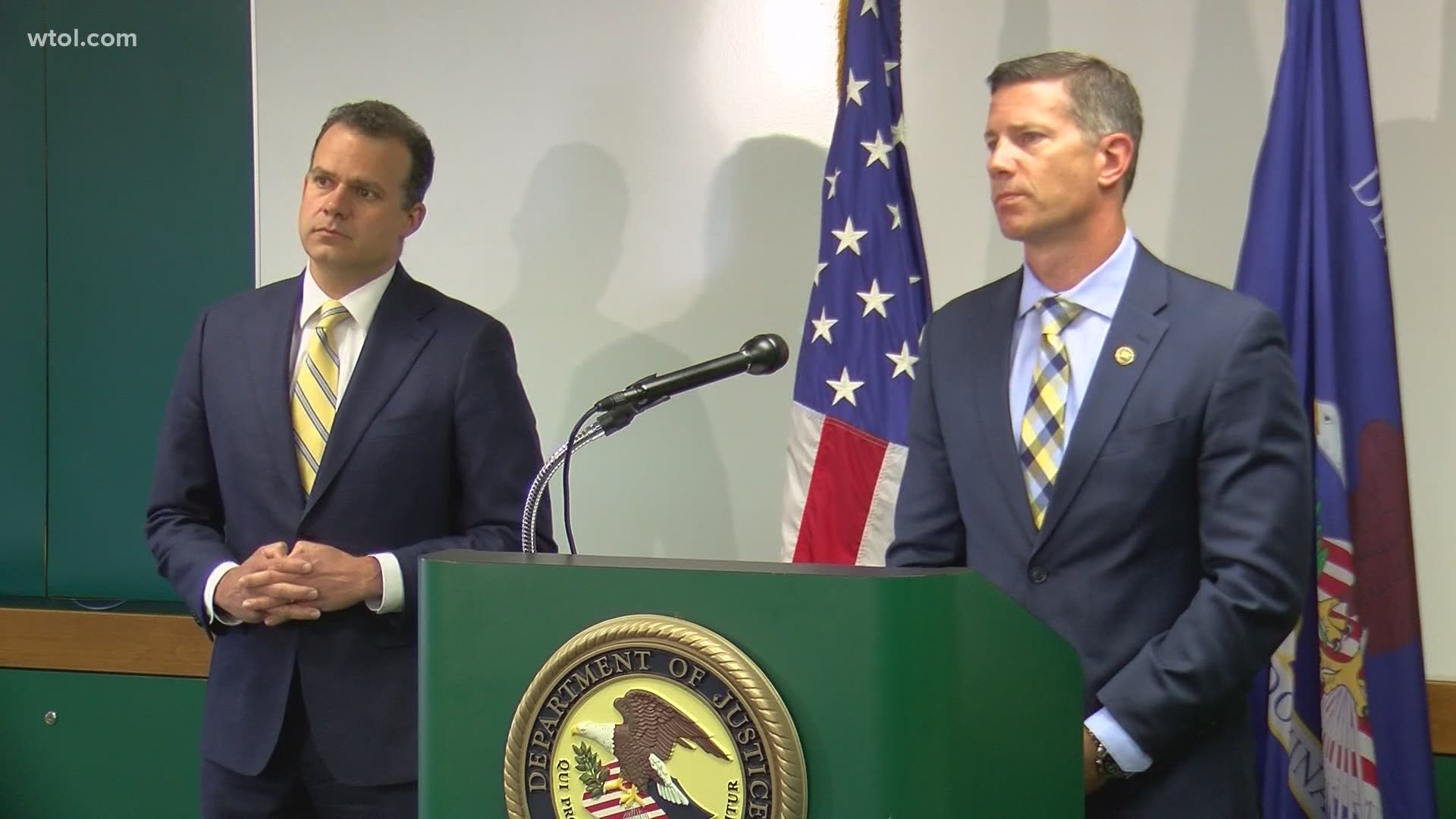TOLEDO, Ohio — Embattled former Toledo City Councilman Gary Johnson filed a motion Thursday in an attempt to have conspiracy charges against him dropped. The charges stem from a federal bribes-for-votes investigation involving himself and fellow former council members Yvonne Harper, Larry Sykes and Tyrone Riley.
Sykes (At-Large), Harper (District 4), Johnson (At-Large) and Riley (District 1), as well as the late attorney Keith Mitchell, are all mentioned in the complaint for their role in an alleged bribes-for-votes scandal that dates back to 2013.
The scheme allegedly encouraged soliciting and/or accepting cash, checks, money orders or other things of value from local business owners in exchange for the council members' votes. Mitchell was accused of funneling the bribes for Harper.
Thursday's motion, filed in U.S. District Court's Northern District of Ohio, seeks to dismiss counts five and 12 against Johnson, which charge him with Hobbs Act violations during his primary election campaign for Lucas County sheriff in 2020. The section of the Hobbs Act that's in play here is "extortion under color of official right," when a public official wrongfully takes money or another valuable not owed to them or their office.
The motion asserts that both counts fail to plead a crime and that count five charges "multiple potential crimes" in a single count.
Count 5 claims that Johnson received checks from a source and permission to put campaign signs at certain locations in exchange for favors. Count 12 charges that Johnson received cash from two sources in a quid pro quo situation.
The motion to dismiss claims that the allegations fail to inform Johnson of the charges, fail to show what the alleged quid pro quo was and that Count 5 charges him with multiple potential offenses in a single count, which could increase the likelihood of a non-unanimous verdict.
"The separate claims within the count making focusing the defense difficult. There is too much in a single count to provide meaningful notice," wrote Johnson's defense attorneys, Richard Kerger and David Klucas.

